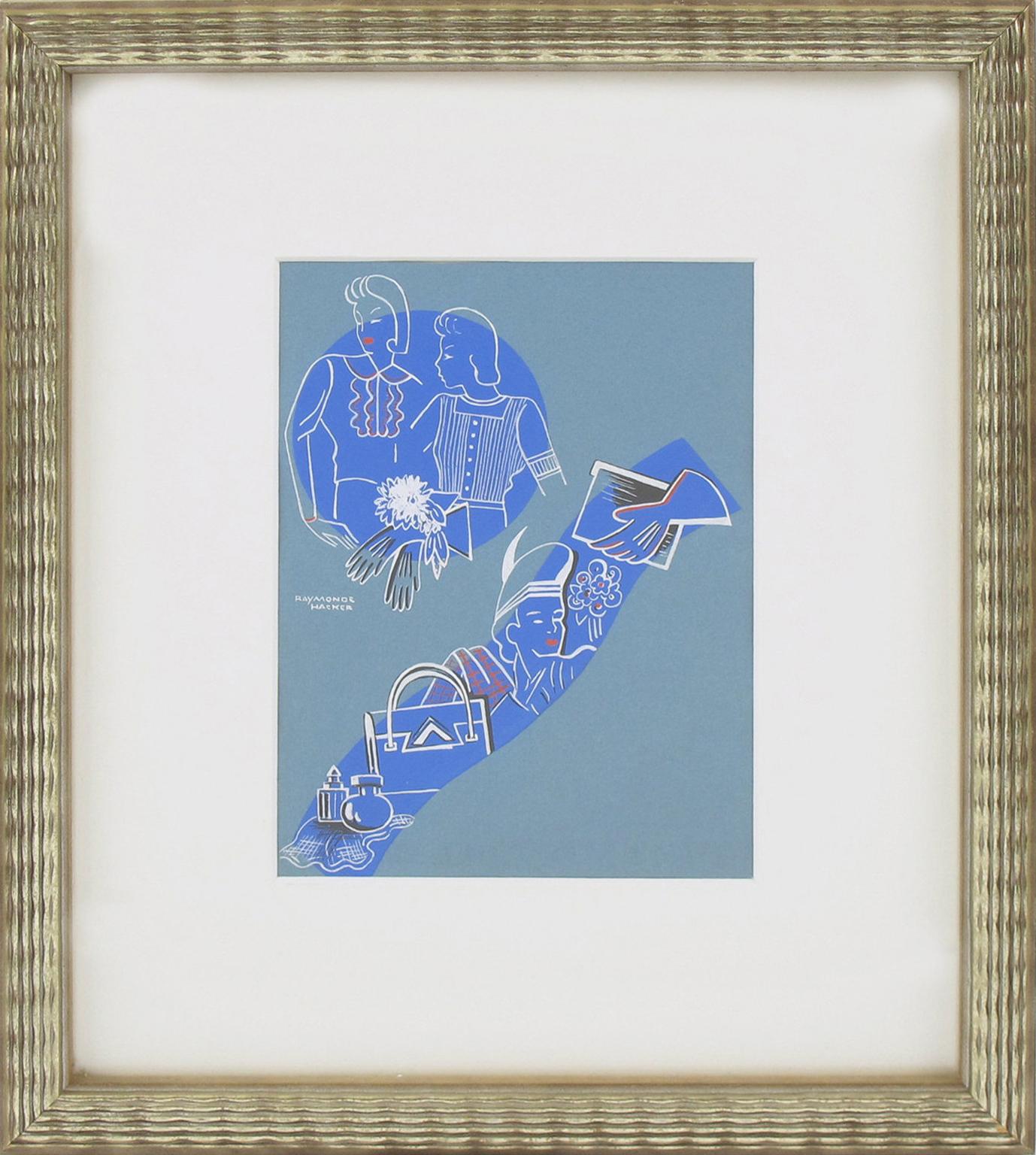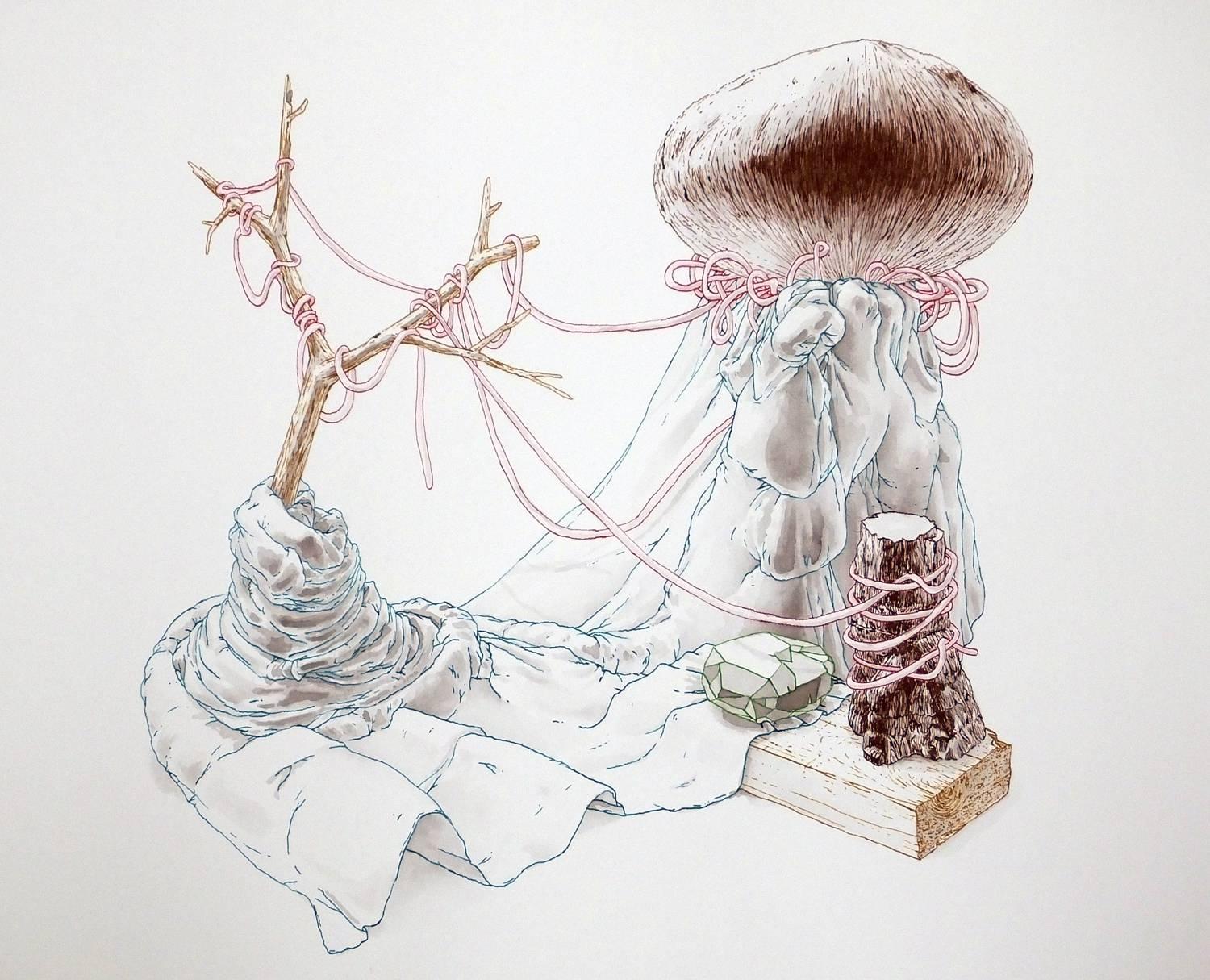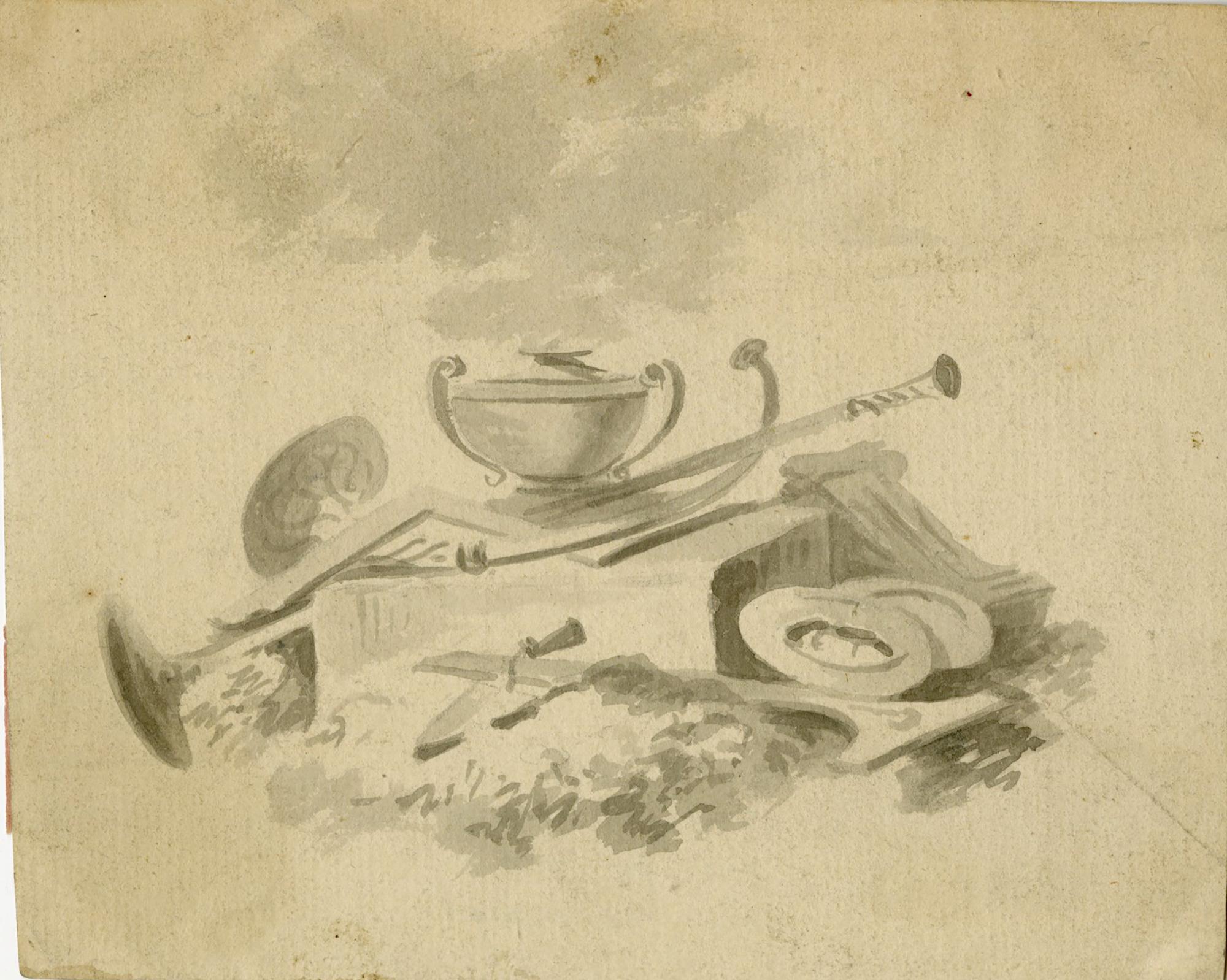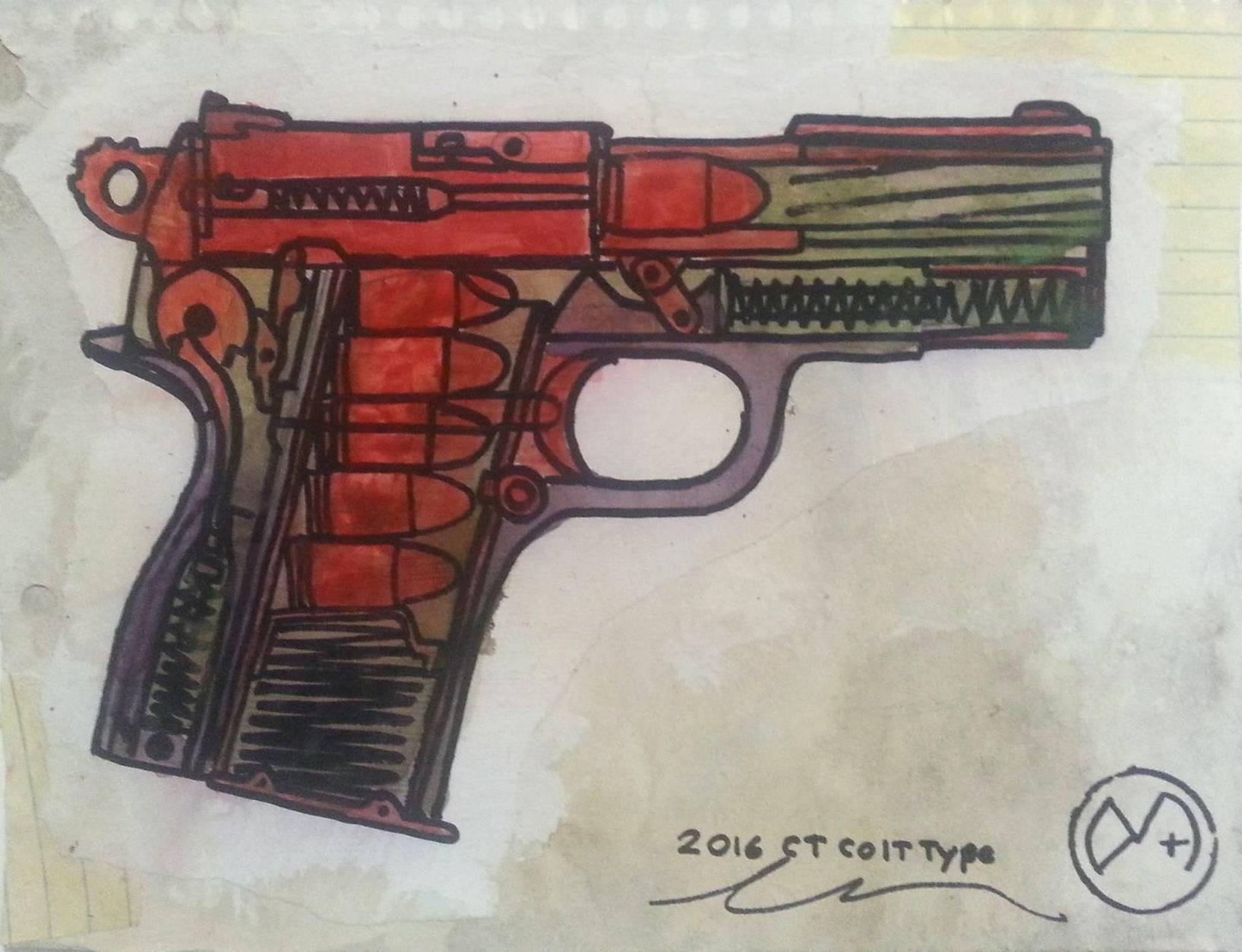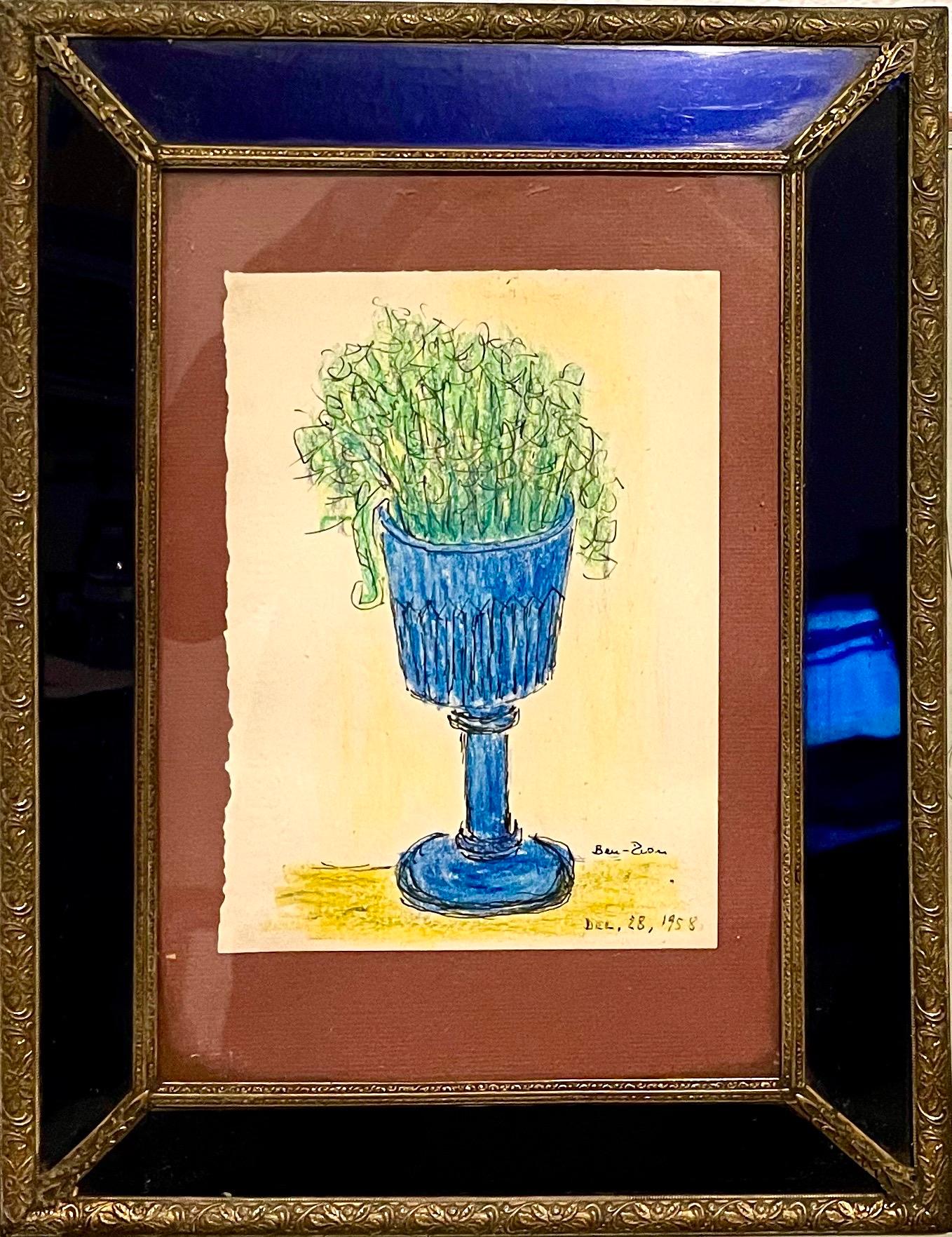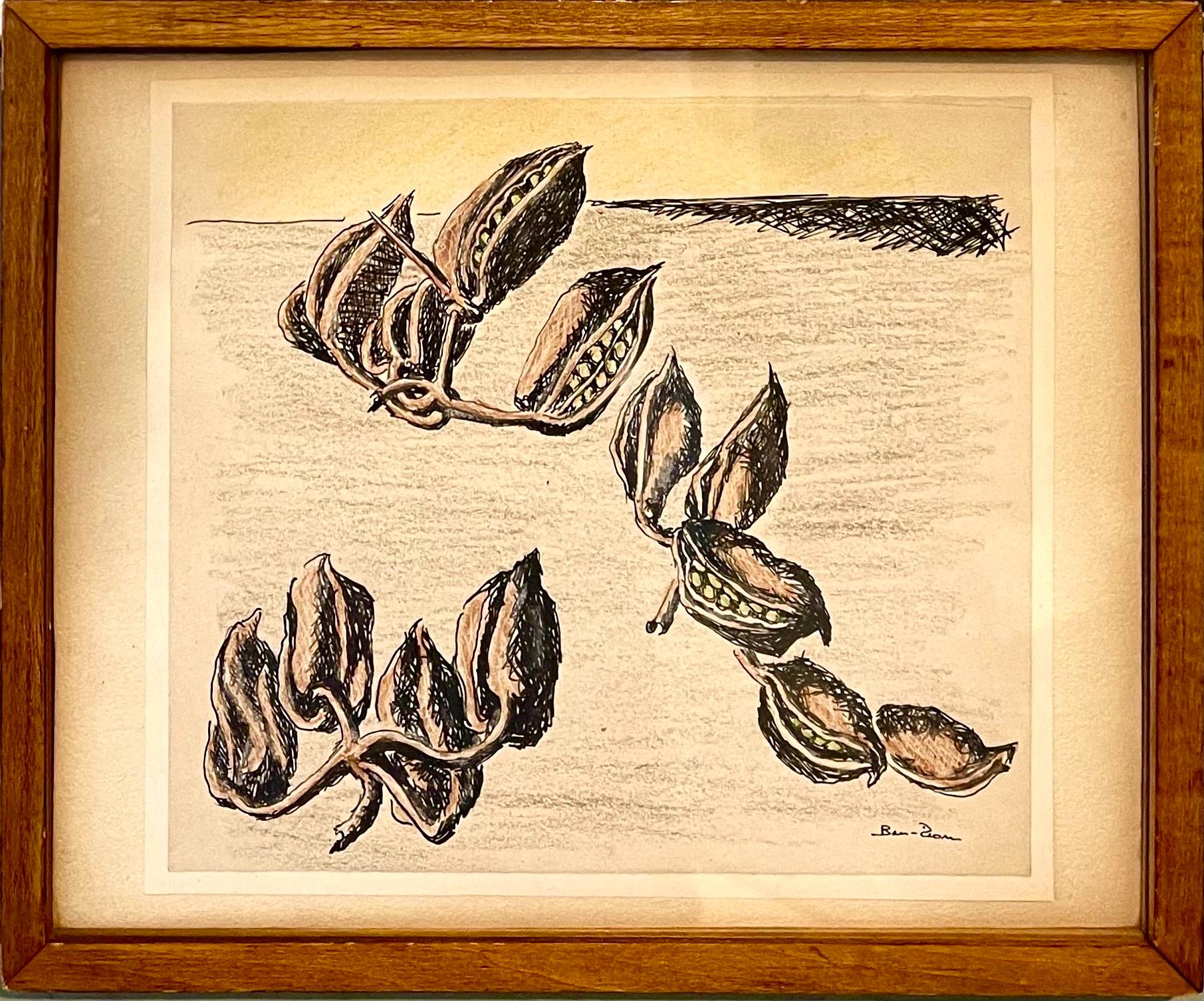Items Similar to "Freedom", Orange and Black Three-Masted Schooner Ink Drawing
Want more images or videos?
Request additional images or videos from the seller
1 of 13
Philippe Mallet"Freedom", Orange and Black Three-Masted Schooner Ink Drawing
About the Item
This artwork depicts a three-masted schooner named Freedom, hailing from New-York. The boat has brown booms, masts, keel and bow, and black and orange hull.
The artist can draw custom designs on demand, feel free to enquire with us.
The artwork is delivered with a mat, but not framed, so that you are free to choose the framing fitting your tastes. We recommend a glass protecting against glares.
A former submariner, Philippe Mallet is a French lover of boats (mainly sailboats, but not only), which he spends most of his time drawing. Cutters, catboats, dinghies, ketchs, schooner, sloops, yawls, but also junk rigs or steamboats.
- Creator:Philippe Mallet (1953)
- Dimensions:Height: 21.66 in (55 cm)Width: 27.56 in (70 cm)
- Medium:
- Period:
- Condition:
- Gallery Location:Clermont-Ferrand, FR
- Reference Number:1stDibs: LU104115074231
About the Seller
5.0
Gold Seller
These expertly vetted sellers are highly rated and consistently exceed customer expectations.
Established in 2018
1stDibs seller since 2018
188 sales on 1stDibs
Typical response time: 2 hours
- ShippingRetrieving quote...Ships From: Clermont-Ferrand, France
- Return PolicyA return for this item may be initiated within 14 days of delivery.
More From This SellerView All
- "Mohawk", Full Sail Black and Red Canadian Schooner Ink DrawingBy Philippe MalletLocated in Clermont-Ferrand, Auvergne-Rhône-AlpesThis artwork depicts a Canadian schooner named Mohawk, hailing from Vancouver. The boat has blue booms, brown masts, black and white hull, red keel and bow. The artist can draw cus...Category
2010s Other Art Style Figurative Drawings and Watercolors
MaterialsPaper, Ink
- "Ranger", 1937 America's Cup Winner J-Class Racing Yacht Sailboat Ink on PaperBy Philippe MalletLocated in Clermont-Ferrand, Auvergne-Rhône-AlpesThis artwork depicts the Ranger, last J-class racing yacht to race for the America's Cup, defeating the Endeavour II in 1937. The artist can draw custom designs on demand, feel free...Category
2010s Other Art Style Figurative Drawings and Watercolors
MaterialsPaper, Ink
- "The Remote", Pigments Watercolor Acrylic Paper DrawingBy Frank GirardLocated in Clermont-Ferrand, Auvergne-Rhône-AlpesTitled "The remote", this artwork created by Frank Girard, utilizes pigments, Chinese ink, watercolors, acrylics, and colored pencils on 400g/m2 neutral white paper. It remains unfra...Category
2010s Realist Figurative Drawings and Watercolors
MaterialsPaper, Ink, Acrylic, Watercolor, Color Pencil, Pigment
- "Persepective", Pigments Watercolor Acrylic Paper DrawingBy Frank GirardLocated in Clermont-Ferrand, Auvergne-Rhône-AlpesTitled "Perspective", this artwork created by Frank Girard, utilizes pigments, Chinese ink, watercolors, acrylics, and colored pencils on 400g/m2 neutral white paper. It remains unfr...Category
2010s Realist Figurative Drawings and Watercolors
MaterialsPaper, Ink, Acrylic, Watercolor, Color Pencil, Pigment
- "The Cold Wind in the Pine Trees", Pigments Watercolor Acrylic Paper DrawingBy Frank GirardLocated in Clermont-Ferrand, Auvergne-Rhône-AlpesTitled "The cold wind in the pine trees", this artwork created by Frank Girard, utilizes pigments, Chinese ink, watercolors, acrylics, and colored pencils on 400g/m2 neutral white pa...Category
2010s Realist Figurative Drawings and Watercolors
MaterialsPaper, Ink, Acrylic, Watercolor, Color Pencil, Pigment
- "Caveman", Red Yellow and Blue Watercolors with Ink BirdmanBy Antony SquizzatoLocated in Clermont-Ferrand, Auvergne-Rhône-AlpesThis item is not framed. Antony Squizzato is a talented French artist who likes to experiment with different styles and techniques.Category
2010s Constructivist Abstract Drawings and Watercolors
MaterialsPaper, Ink, Watercolor
You May Also Like
- French Art Deco Original Gouache Illustration Drawing by Raymonde HackerLocated in Atlanta, GAA French Art Deco illustrative drawing, hand painted in ink and gouache on blue laid paper. The design includes a collection of fashion accessories, handbags, gloves, hats, and perfu...Category
1930s Art Deco Figurative Drawings and Watercolors
MaterialsPaper, Ink, Gouache
- "Some far away speech" Still life, Ink and watercolorBy Brian SpolansLocated in Philadelphia, PA"Some far away speech" is an original ink and watercolor work on paper by Brian Spolans. The piece ships framed as pictured and measures 20.5in x 28.5in. Alternative custom framing...Category
2010s Contemporary Still-life Drawings and Watercolors
MaterialsInk, Watercolor, Archival Paper
- Still life with a Herald's trumpet, a Neoclassical urn, a Mason's square, .....Located in Middletown, NYA classic Grand Tour composition. English School, 18th Century Still life with a Herald's trumpet, a Neoclassical urn, a Mason's square, and a protractor. Ink and wash in gray ink ...Category
Late 18th Century Still-life Drawings and Watercolors
MaterialsInk, Watercolor, Laid Paper
- Colt Type 10By Alfredo MartinezLocated in New York, NYColt Type 10, 2016 Mixed media on hand-collaged paper 10 1/2 × 8 in 26.7 × 20.3 cmCategory
21st Century and Contemporary Contemporary Still-life Drawings and Water...
MaterialsInk, Laid Paper, Permanent Marker
- Expressionist Color Drawing Cobalt Glass Vintage Frame Modernist Ben Zion WPABy Ben-Zion WeinmanLocated in Surfside, FLExpressionist ink and pastel crayon drawing of flowers in vase. Framed in a vintage cobalt blue glass original frame Hand signed and dated Framed it measures 13.5 X 10.5 The actual paper is 7.5 X 5.5 Born in 1897, Ben-Zion Weinman celebrated his European Jewish heritage in his visual works as a sculptor, painter, and printmaker. Influenced by Spinoza, Knut Hamsun, and Wladyslaw Reymont, as well as Hebrew literature, Ben-Zion wrote poetry and essays that, like his visual work, attempt to reveal the deep “connection between man and the divine, and between man and earth.” An emigrant from the Ukraine, he came to the US in 1920. He wrote fairy tales and poems in Hebrew under the name Benzion Weinman, but when he began painting he dropped his last name and hyphenated his first, saying an artist needed only one name. Ben-Zion was a founding member of “The Ten: An Independent Group” The Ten” a 1930’s avant-garde group, Painted on anything handy. Ben-Zion often used cabinet doors (panels) in his work. Other members of group included Ilya Bolotowsky, Lee Gatch, Adolph Gottlieb, Louis Harris, Yankel Kufeld, Marcus Rothkowitz (later known as Mark Rothko), Louis Schanker, and Joseph Solman. The Art of “The Ten” was generally described as expressionist, as this style offered the best link between modernism and social art. Their exhibition at the Mercury Gallery in New York held at the same time as the Whitney Annual Exhibition of Contemporary American Painting, included a manifesto concentrating on aesthetic questions and criticisms of the conservative definition of modern art imposed by the Whitney. Ben-Zion’s work was quickly noticed. The New York Sun said he painted “furiously” and called him “the farthest along of the lot.” And the triptych, “The Glory of War,” was described by Art News as “resounding.” By 1939, The Ten disbanded because most of the members found individual galleries to represent their work. Ben-Zion had his first one-man show at the Artist’s Gallery in Greenwich Village and J.B. Neumann, the highly esteemed European art dealer who introduced Paul Klee, (among others) to America, purchased several of Ben-Zion’s drawings. Curt Valentin, another well-known dealer, exhibited groups of his drawings and undertook the printing of four portfolios of etchings, each composed of Ben-Zion’s biblical themes. He worked as a WPA artist. Ben-Zion’s work is represented in many museums throughout the country including the Metropolitan, the Whitney, and the Museum of Modern Art in New York, the Art Institute of Chicago, the Philadelphia Museum of Art and the Phillips Collection, Washington. The Jewish Museum in New York opened in 1948 with a Ben-Zion exhibition. Ben-Zion consistently threaded certain subject matter—nature, still life, the human figure, the Hebrew Bible, and the Jewish people—into his work throughout his life. "In all his work a profound human feeling remains. Sea and sky, even sheaves of wheat acquire a monolithic beauty and simplicity which delineates the transient as a reflection of the eternal. This sensitive inter- mingling of the physical and metaphysical is one of the most enduring features of Ben-Zion's works." (Excerpt from Stephen Kayser, “Biblical Paintings,” The Jewish Museum Catalogue, 1952). Mystical Imprints: Marc Chagall, Ben-Zion, and Ben Shahn presents the print work of three prominent 20th century Jewish artists born in the Russian Empire. Among these seventy pieces are etchings and lithographs from Chagall’s Bible series...Category
1950s Expressionist Still-life Drawings and Watercolors
MaterialsPaper, Oil Crayon, Pastel, Ink
- Expressionist Ink, Pastel, Crayon Drawing Jewish American Modernist Ben Zion WPABy Ben-Zion WeinmanLocated in Surfside, FLExpressionist ink and pastel crayon drawing of beans (carobs, flowers?) in pods Hand signed. Born in 1897, Ben-Zion Weinman celebrated his European Jewish heritage in his visual works as a sculptor, painter, and printmaker. Influenced by Spinoza, Knut Hamsun, and Wladyslaw Reymont, as well as Hebrew literature, Ben-Zion wrote poetry and essays that, like his visual work, attempt to reveal the deep “connection between man and the divine, and between man and earth.” An emigrant from the Ukraine, he came to the US in 1920. He wrote fairy tales and poems in Hebrew under the name Benzion Weinman, but when he began painting he dropped his last name and hyphenated his first, saying an artist needed only one name. Ben-Zion was a founding member of “The Ten: An Independent Group” The Ten” a 1930’s avant-garde group, Painted on anything handy. Ben-Zion often used cabinet doors (panels) in his work. Other members of group included Ilya Bolotowsky, Lee Gatch, Adolph Gottlieb, Louis Harris, Yankel Kufeld, Marcus Rothkowitz (later known as Mark Rothko), Louis Schanker, and Joseph Solman. The Art of “The Ten” was generally described as expressionist, as this style offered the best link between modernism and social art. Their exhibition at the Mercury Gallery in New York held at the same time as the Whitney Annual Exhibition of Contemporary American Painting, included a manifesto concentrating on aesthetic questions and criticisms of the conservative definition of modern art imposed by the Whitney. Ben-Zion’s work was quickly noticed. The New York Sun said he painted “furiously” and called him “the farthest along of the lot.” And the triptych, “The Glory of War,” was described by Art News as “resounding.” By 1939, The Ten disbanded because most of the members found individual galleries to represent their work. Ben-Zion had his first one-man show at the Artist’s Gallery in Greenwich Village and J.B. Neumann, the highly esteemed European art dealer who introduced Paul Klee, (among others) to America, purchased several of Ben-Zion’s drawings. Curt Valentin, another well-known dealer, exhibited groups of his drawings and undertook the printing of four portfolios of etchings, each composed of Ben-Zion’s biblical themes. He worked as a WPA artist. Ben-Zion’s work is represented in many museums throughout the country including the Metropolitan, the Whitney, and the Museum of Modern Art in New York, the Art Institute of Chicago, the Philadelphia Museum of Art and the Phillips Collection, Washington. The Jewish Museum in New York opened in 1948 with a Ben-Zion exhibition. Ben-Zion consistently threaded certain subject matter—nature, still life, the human figure, the Hebrew Bible, and the Jewish people—into his work throughout his life. "In all his work a profound human feeling remains. Sea and sky, even sheaves of wheat acquire a monolithic beauty and simplicity which delineates the transient as a reflection of the eternal. This sensitive inter- mingling of the physical and metaphysical is one of the most enduring features of Ben-Zion's works." (Excerpt from Stephen Kayser, “Biblical Paintings,” The Jewish Museum Catalogue, 1952). Mystical Imprints: Marc Chagall, Ben-Zion, and Ben Shahn presents the print work of three prominent 20th century Jewish artists born in the Russian Empire. Among these seventy pieces are etchings and lithographs from Chagall’s Bible series...Category
Mid-20th Century Expressionist Still-life Drawings and Watercolors
MaterialsPaper, Oil Crayon, Pastel, Ink
